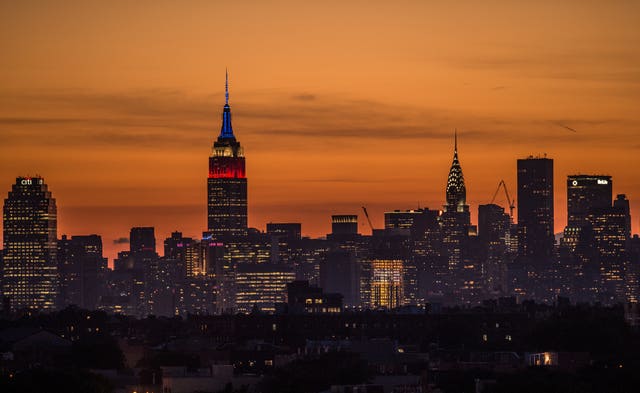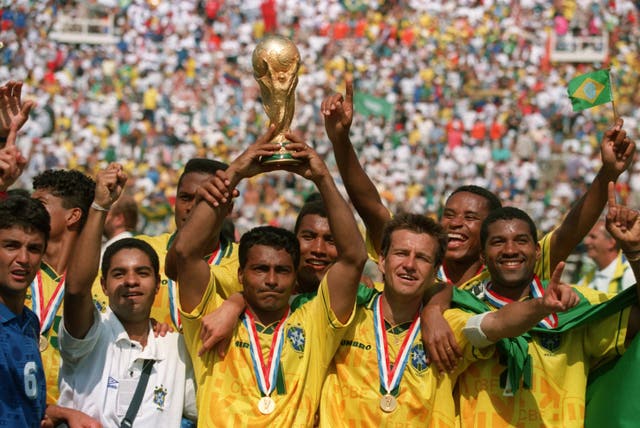The hosts of the 2026 World Cup will be decided in Moscow on Wednesday.
Here, Press Association Sport looks at the rival bidders from Morocco 2026 and United 2026 (a joint bid from the United States, Canada and Mexico).
Venues and stadia

The United bid has everything in place, with 16 host cities – from Boston and New York in the east, to Los Angeles in the west, and Guadalajara and Mexico City in the south to Edmonton in the north – and existing stadia. The largest is AT&T Stadium in Dallas, which has a 92,000 capacity. Only 20 of the slated 80 matches will take place outside the United States, with 10 in Canada and 10 in Mexico. All matches from the quarter-finals onwards will be in the USA. The Morocco bid is more compact, taking place in 12 cities, from Tangier to Marrakesh and Rabat to Casablanca. There is building work to do, with five modular stadia planned. These can be transformed post-event.
Geography
#Morocco2026 in 10 reasons > Reason 3⃣
With its #Mediterranean climate and compact hosting plan, #Morocco2026 offers the ideal conditions for the elite of world #football to flourish on the sport's greatest stage 🙌 #TogetherForOneGoal 🇲🇦 pic.twitter.com/wczxeZO8Hz
— Morocco 2026 (@Morocco2026_EN) June 5, 2018
Morocco is in one time zone, aligned with Europe, and is just 14 kilometres (8.7 miles) across the Strait of Gibraltar from football’s heartland. The longest distance between host cities is 1000km (620 miles) or a flight time of 75 minutes. The United bid is across the vast North America and in three countries. There are four time zones in mainland USA and kick-off times would likely be less favourable for the lucrative European and Asian broadcasting markets. The weather and climate may vary across the three countries, with games in Denver and Mexico City at altitude.
Previous bids

Morocco has bid for the tournament on four previous occasions, losing out each time, in 1994 (to the United States), 1998 (France), 2006 (Germany) and 2010 (South Africa). The United bid has experienced success and failure in the bidding process, even competing against each other. Mexico was chosen ahead of the USA and Canada to host the 1986 tournament. That was Canada’s sole prior bid, while Mexico lost out to Argentina in 1978 and a joint South Korea-Japan tournament in 2002. The USA went on to host the 1994 tournament, but lost out to Qatar in bidding for 2022. Morocco hosted the Club World Cup in 2013 and 2014 and the 2018 African Nations Cup.
Political interference
The U.S. has put together a STRONG bid w/ Canada & Mexico for the 2026 World Cup. It would be a shame if countries that we always support were to lobby against the U.S. bid. Why should we be supporting these countries when they don’t support us (including at the United Nations)?
— Donald J. Trump (@realDonaldTrump) April 26, 2018
If FIFA really wants to steer clear of politics, then the obvious candidate is Morocco. Donald Trump’s presidency and policies on immigration, in particular, make the United 2026 bid a sensitive one. It is an unlikely alliance, especially with Mexico, after Trump’s persistent promise of a wall between the southern US and the central American country. Trump’s tweeted threat on those who do not back the United bid could just be the beginning. The Morocco bid hopes to act for the whole of Africa. The continent’s only previous tournament was in 2010. The Western Sahara conflict could stoke political tensions against Morocco. South Africa has already withdrawn its backing for its continental neighbour.
Supporters
There is a battle of the Galacticos going on as England’s David Beckham favours the United bid, while Brazil’s Roberto Carlos, his former Real Madrid team-mate, is backing Morocco. Lothar Matthaus, who lifted the 1990 World Cup with West Germany, is also backing the North Africans, alongside Senegal’s El Hadji Diouf, whose use of the word “sister” to describe FIFA secretary general Fatma Samoura prompted an investigation. The backing of former FIFA president Sepp Blatter may not help Morocco.
